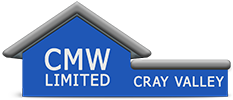
Introduction
In the dynamic landscape of the construction industry, cable and containment installers and project managers must stay informed about the latest innovations in conduit technology. Rigid PVC conduit, known for its durability and adaptability, has emerged as a go-to solution for numerous infrastructure projects. Understanding its features and applications can significantly streamline your installation processes. This comprehensive guide aims to provide an in-depth exploration of rigid PVC conduit, its distinctive attributes, and its diverse applications on building sites.
Key Features of Rigid PVC Conduit
Rigid PVC conduit, a robust solution for cable and containment management, boasts several key features that contribute to its widespread popularity among industry professionals. These notable features include:
- Durability and Longevity
- Corrosion Resistance
- Flame Retardant Properties
- High Tensile Strength
- Easy Installation Process
- Customizable Options
These features collectively make rigid PVC conduit a reliable and efficient choice for various construction projects, ensuring long-term sustainability and reduced maintenance costs.
Understanding the Uses of Rigid PVC Conduit
Electrical Installations
Rigid PVC conduit is pivotal in facilitating safe and efficient electrical installations. Its ability to protect cables from external elements and provide insulation makes it an indispensable asset in residential and commercial settings.
Telecommunications Infrastructure
The seamless integration of rigid PVC conduit in telecommunications infrastructure has revolutionized the industry. By safeguarding delicate communication cables from potential damage, it ensures uninterrupted data and voice transmission, enhancing overall network reliability.
Advantages of Rigid PVC Conduit Over Traditional Alternatives
Rigid PVC conduit offers several distinct advantages over its traditional counterparts, making it a preferred choice for many construction professionals. Some of these advantages include:
- Enhanced Weather Resistance
- Lower Installation Costs
- Greater Flexibility
- Minimal Maintenance Requirements
These benefits highlight the significant impact that rigid PVC conduit can have on project timelines and budget allocations, making it an economically sound and practical solution.
Best Practices for Installing Rigid PVC Conduit
To optimize the benefits of rigid PVC conduit, adhering to best practices during the installation process is essential. These practices include:
1. Thorough Site Analysis and Planning
2. Utilizing Proper Support and Fastening Techniques
3. Adhering to Industry Safety Standards
4. Regular Inspection and Maintenance Protocols
By following these practices, you can ensure the seamless integration of rigid PVC conduit within your construction projects, mitigating potential risks and ensuring long-term efficiency.
Frequently Asked Questions (FAQs)
1. Is rigid PVC conduit suitable for outdoor installations?
Rigid PVC conduit is designed to withstand various weather conditions, making it an ideal choice for indoor and outdoor applications.
2. Can rigid PVC conduit be customized according to specific project requirements?
Yes, one of the notable advantages of rigid PVC conduit is its customizable nature, allowing it to be tailored to the unique needs of different projects.
3. What are the typical maintenance requirements for rigid PVC conduit?
Rigid PVC conduit requires minimal maintenance, primarily focusing on routine inspections for any signs of damage or degradation.
4. Does rigid PVC conduit comply with industry safety standards?
Yes, rigid PVC conduit is manufactured to adhere to stringent safety standards, ensuring its reliability and suitability for various construction projects.
5. Is rigid PVC conduit cost-effective in the long run?
Absolutely, due to its longevity and minimal maintenance requirements, rigid PVC conduit proves to be a cost-effective investment for long-term infrastructure projects.
6. Can rigid PVC conduit withstand high temperatures?
Rigid PVC conduit demonstrates remarkable heat resistance, making it suitable for installations in elevated temperature conditions.
Conclusion
In summary, understanding the fundamental aspects of rigid PVC conduit, including its key features, versatile applications, and best practices for installation, is essential for cable and containment installers and project managers. By harnessing the durability, adaptability, and cost-effectiveness of rigid PVC conduit, you can optimize your construction projects, ensuring seamless and reliable cable and containment managemen
Related Products
